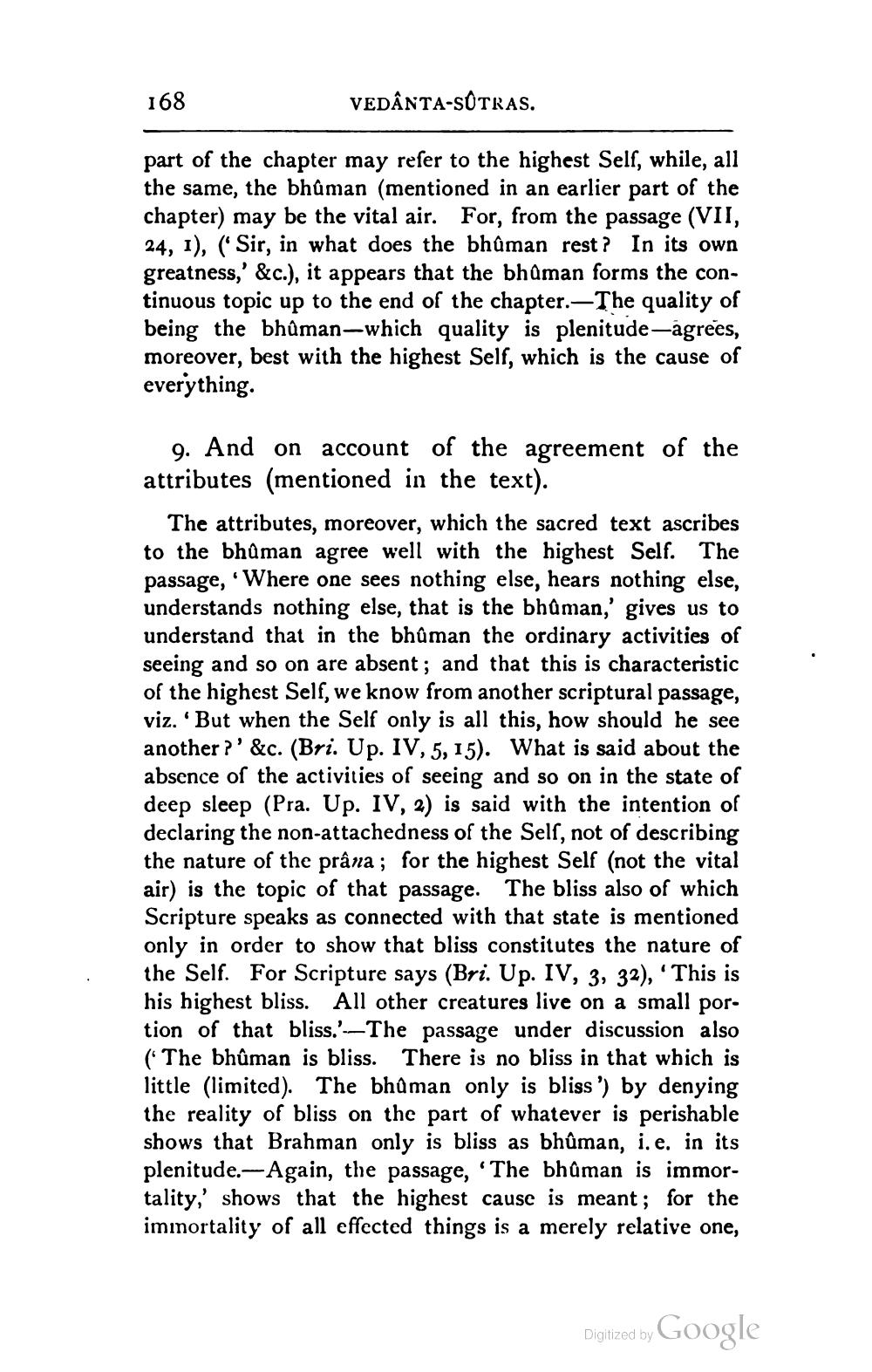________________
168
VEDÂNTA-SOTRAS.
part of the chapter may refer to the highest Self, while, all the same, the bhûman (mentioned in an earlier part of the chapter) may be the vital air. For, from the passage (VII, 24, 1), ('Sir, in what does the bhûman rest? In its own greatness,' &c.), it appears that the bhūman forms the continuous topic up to the end of the chapter.—The quality of being the bhûman-which quality is plenitude-agrees, moreover, best with the highest Self, which is the cause of everything.
9. And on account of the agreement of the attributes (mentioned in the text).
The attributes, moreover, which the sacred text ascribes to the bhûman agree well with the highest Self. The passage, 'Where one sees nothing else, hears nothing else, understands nothing else, that is the bhūman,' gives us to understand that in the bhûman the ordinary activities of seeing and so on are absent; and that this is characteristic of the highest Self, we know from another scriptural passage, viz. 'But when the Self only is all this, how should he see another?' &c. (Bri. Up. IV, 5, 15). What is said about the absence of the activities of seeing and so on in the state of deep sleep (Pra. Up. IV, 2) is said with the intention of declaring the non-attachedness of the Self, not of describing the nature of the prâna; for the highest Self (not the vital air) is the topic of that passage. The bliss also of which Scripture speaks as connected with that state is mentioned only in order to show that bliss constitutes the nature of the Self. For Scripture says (Bri. Up. IV, 3, 32), 'This is his highest bliss. All other creatures live on a small portion of that bliss.'--The passage under discussion also (The bhûman is bliss. There is no bliss in that which is little (limited). The bhūman only is bliss ') by denying the reality of bliss on the part of whatever is perishable shows that Brahman only is bliss as bhûman, i.e. in its plenitude.-Again, the passage, 'The bhûman is immortality,' shows that the highest cause is meant; for the iminortality of all effected things is a merely relative one,
Digitized by
Digized by Google




